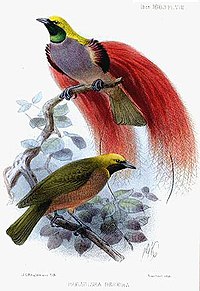
Photo from wikipedia
Human attractiveness is a potent social variable, and people assess their potential partners based on input from a range of sensory modalities. Among all sensory cues, visual signals are typically… Click to show full abstract
Human attractiveness is a potent social variable, and people assess their potential partners based on input from a range of sensory modalities. Among all sensory cues, visual signals are typically considered to be the most important and most salient source of information. However, it remains unclear how people without sight assess others. In the current study, we explored the relative importance of sensory modalities other than vision (smell, touch, and audition) in the assessment of same- and opposite-sex strangers. We specifically focused on possible sensory compensation in mate selection, defined as enhanced importance of modalities other than vision among blind individuals in their choice of potential partners. Data were obtained from a total of 119 participants, of whom 78 were blind people aged between 16 and 65 years (M = 42.4, SD = 12.6; 38 females) and a control sample of 41 sighted people aged between 20 and 64. As hypothesized, we observed a compensatory effect of blindness on auditory perception. Our data indicate that visual impairment increases the importance of audition in different types of social assessments for both sexes and in mate choice for blind men.
Journal Title: Archives of Sexual Behavior
Year Published: 2018
Link to full text (if available)
Share on Social Media: Sign Up to like & get
recommendations!